Marvel’s Kang Will Never Be As Great A Villain As Thanos, Here’s Why
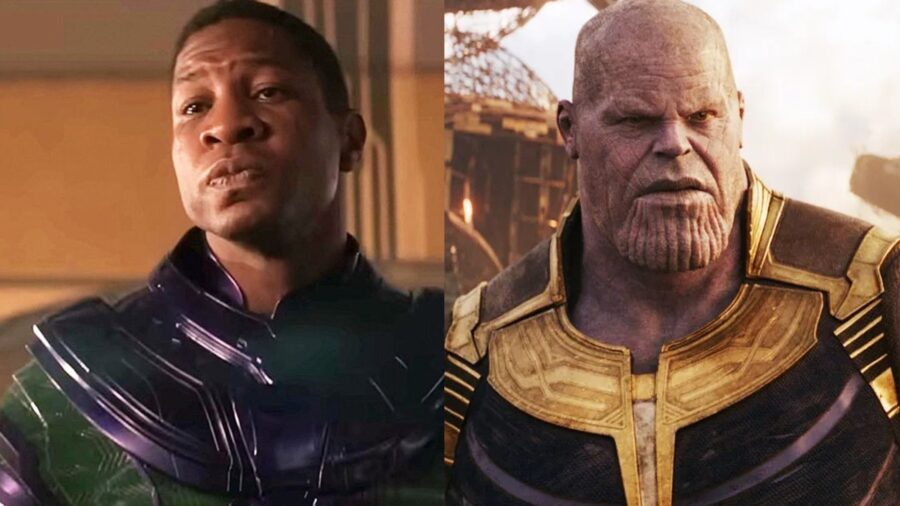
It’s got nothing to do with the controversy regarding the allegation against Jonathan Majors. The overall drop in quality in Marvel’s offerings, while sad, really has nothing to do with it either. Kang will never be as great a villain as Thanos because the latter was a legend long before he hit the big screen, and the foundation of his success was hype.
Don’t get me wrong–usually when we use the word “hype” these days we mean it negatively, as in “it didn’t live up to the hype.” Josh Brolin’s Thanos lived up to the hype. But the character also very much needed that hype for Marvel’s Infinity Saga to achieve what it did, and there’s no way for Jonathan Majors’ Kang to replicate that.
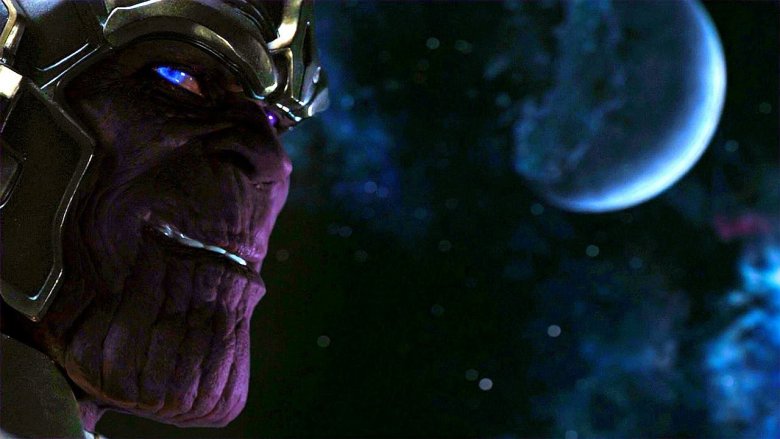
Try to remember first seeing 2012’s Avengers and, assuming you saw it in the theater first, the audience’s reaction to the reveal of Thanos in the mid-credits scene. Brolin had yet to even be cast at that point and director Joss Whedon would later reveal he had no clear longterm plans for the Mad Titan.
Regardless, that single profile shot mattered in a way that Kang never will; that perhaps no single movie villain reveal ever will. Even though none of us knew yet exactly how the MCU would adapt the Titan’s stories or how the villain’s motivations would evolve from those of the source material, we all knew something huge had to be coming. We were all either well aware of who Thanos was, or knew someone who would happily talk our ear off about it.
That anticipation helped fuel the hunger for every Marvel movie that followed, making fans eager for any Easter egg or tease for what was waiting for us.
Now think back again to that Avengers mid-credits scene. This time imagine Alexis Denisof’s “The Other” speaks his ominous warning to the man in the chair, and rather than Thanos, we’re all greeted with this face:
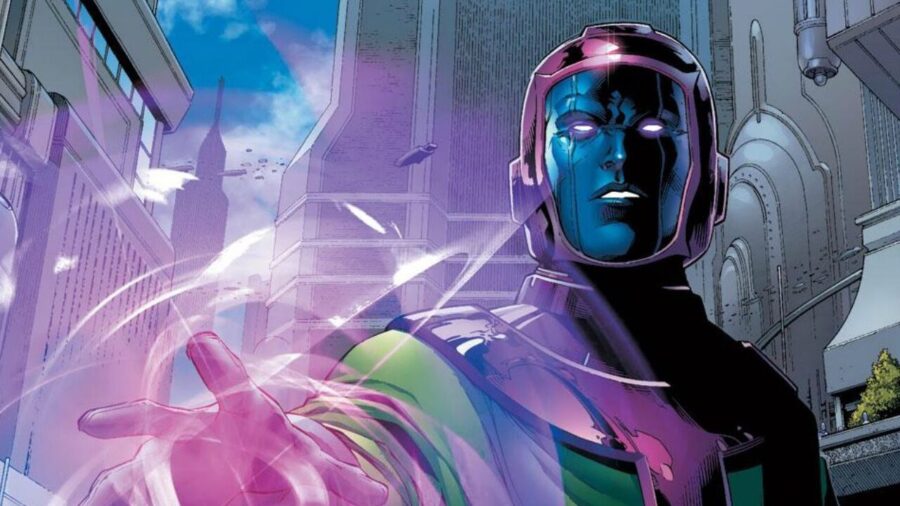
Do you think the reaction to the helmeted face of Kang, looking like a lollipop merged with a NASA space suit, would come close to what the cruel visage of Thanos elicited?
Sure, most of the Marvel fans would probably recognize him. And they really wouldn’t care. At all. If anything, they’d just be confused since Avengers had nothing to do with time travel.
You have to understand that, unlike anything Kang has been involved in, the arrival of Thanos in 1991’s Infinity Gauntlet miniseries and the line-wide event of the same name was like a narrative atomic bomb in Marvel Comics. Before being resurrected shortly before the event, Thanos hadn’t been active in the comics since his “death” in 1977’s Marvel Two-In-One Annual #2.
So after being MIA for 14 years, Thanos shows up, kills half the people in the universe with the snap of his fingers and then not only slaughters most of the surviving superheroes, but when all the Marvel gods align against him — I’m talking not just the beardly “thou” and “thee” spouting gods from Asgard and Olympus, but also the cosmic dudes like the Celestials and Galactus and beings so powerful they’re basically just universal concepts in physical form — it’s like Howard the Duck fighting John Cena; they’re toast.
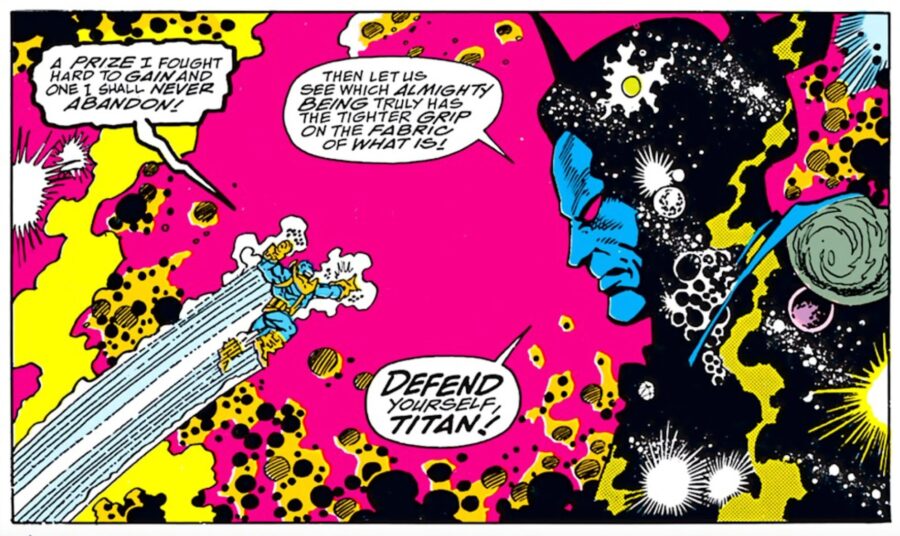
And what has Kang done compared to Thanos?
He time travels a lot.
Which, you know. Pretty much everyone in Marvel eventually does.
Maybe that’s overly dismissive, but it’s true. Kang has not been at the head of any Marvel Comics stories with the same kind of impact as the ones Thanos has.
Kang is in the original Secret Wars comic, the one from the ’80s, and as a member of Doctor Doom’s army of villains he contributes by occasionally shooting a ray gun. He’s integral to the 1998-9 Avengers Forever miniseries, but he’s working on the heroes’ side for most of the story.
Even The Kang Dynasty, the storyline from which the upcoming Avengers 5 takes its name, did not cause the kind of ripples Thanos’ stories have. It’s essentially a really long alien invasion story — Kang attacks Earth from his orbiting sword-shaped spaceship — in which the time traveler succeeds in temporarily conquering Earth.
In spite of Kang conquering the globe, the storyline portrayed as covering at least a few months in the comics, and more Avengers being involved than in most Avengers storylines, the events of it are hardly ever referenced again.
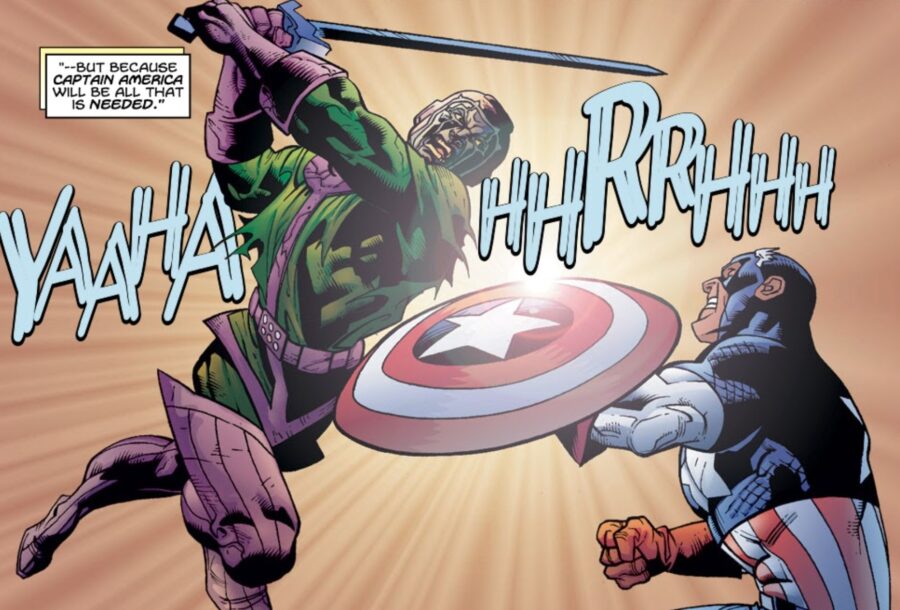
Kang simply does not have the cultural staying power that Thanos does. Kang has a gimmick — time travel — and it’s ultimately something that will work against his popularity.
Who cares what happens to Kang? We’ve already seen — in the post-credits scene of Ant-Man & The Wasp: Quantumania — literally hundreds of Kangs. He can win, he can lose, he can die a million deaths, and there are still more out there.
Imagine if, before Darth Vader’s death in Return of the Jedi, one of the earlier two movies included a post-credits scene with hundreds of Vaders from across a multiverse. Would Anakin Skywalker’s sacrifice still mean anything to us?
There are a million, billion Kangs, but there was only one Thanos. And that’s exactly why Thanos will always matter more.
P.S. And yeah, I know, there are more versions of Thanos in the multiverse, but come on. You know as well as I do, there was only one Thanos. Not to mention that, unlike Kang, Thanos doesn’t have his own multiverse labor union.












